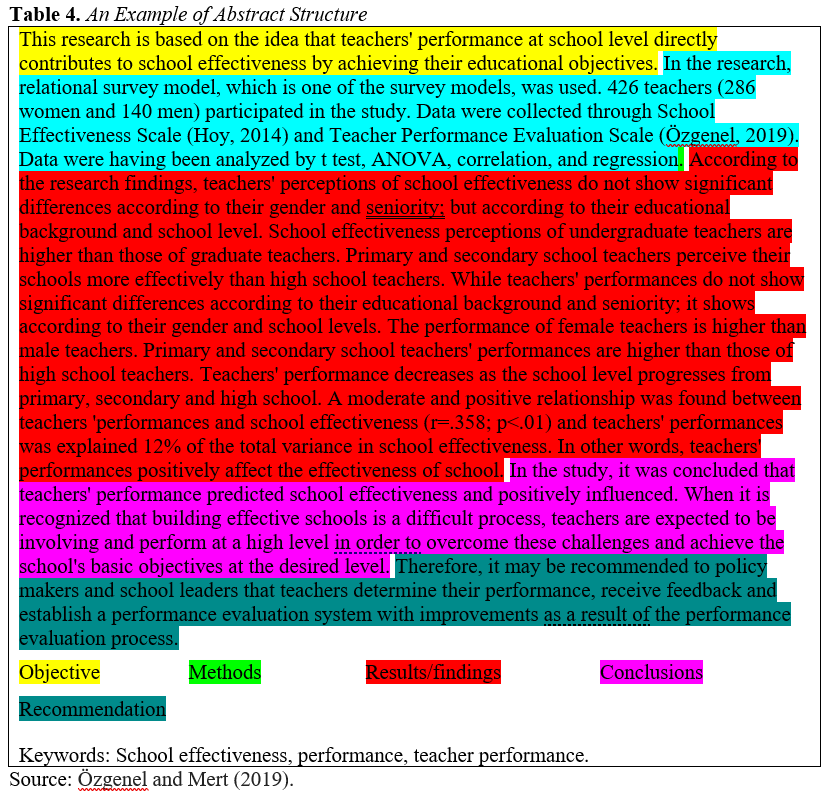An abstract is a brief, yet comprehensive summary of a research paper that provides readers with an overview of the research objectives, methodology, findings, and implications. An abstract's quality significantly impacts the paper's visibility and reception in academic and professional circles (Lorenc & Hicks, 2016; Pham & Hoffmann, 2015). When researchers encounter a satisfactory abstract, they will be eager to access the content of the article. Tips for writing abstract:
- Summarize the article, not introduce it. Novice authors often write abstracts as if they were introductions. Do not—that is what introductions are for.
- Tell a story. State the puzzle or problem that the article is addressing, rather than giving a barrage of data without an argument or a conclusion.
- State the argument and a claim for the significance of that argument.
- Reveal the most valuable findings. People are more likely to read an article if they know what is most interesting about it up front.
- State methods briefly, in no more than a sentence. Do not let your description of how you conducted the study or developed your theoretical frame take over the abstract.
- Use strong verbs, not vague ones. Instead of “exploring” or “examining” a subject, your abstract “argues” or “demonstrates.” Instead of “attempts to” or “tries to,” your abstract “shows.” (One journal editor told me that if she sees the word explores anywhere in an abstract, it’s a red flag, suggesting that the article is not argumentative.)
- Include all the most relevant keywords since many search engines search by abstract and title alone.
Elements of abstract:
- Background/problem: State why I embarked on the project—often some reference to a gap or debate in the literature or a real-world situation or problem.
- Objective/aim: State what my project/study was intending to figure out, the topic of the article.
- Method/design: State how I accomplished the project; name my data and methodology.
- Results/findings: State what I found through the project, my findings.
- Conclusions/discussion/recommendation: State what conclusions I draw from the project, my argument (and recommendations, if that is appropriate).
- Keywords: List the keywords or search terms that I definitely want to appear in my abstract (Belcher, 2019).
In Table 4, there is an example of abstract from Özgenel & Mert (2019)’s study. This abstract was analyzed in terms of its main parts with different colors.

An abstract is a brief but comprehensive summary of the research paper, providing readers with an overview of the research's aims, methodology, findings, and conclusions. The quality of the abstract significantly affects the visibility and acceptance of the article in academic and professional circles. Researchers who come across a good abstract will look forward to accessing the content of the article. Some tips to consider when writing an abstract are to summarize the article, not introduce it; tell an original story and state the problem the article addresses; state the argument and its importance; to reveal the most valuable findings; briefly state methods and use strong verbs; to include the most appropriate keywords. Key elements included in the abstract include background/problem, purpose, method/design, results/findings, conclusions, discussion, recommendation, and keywords.

